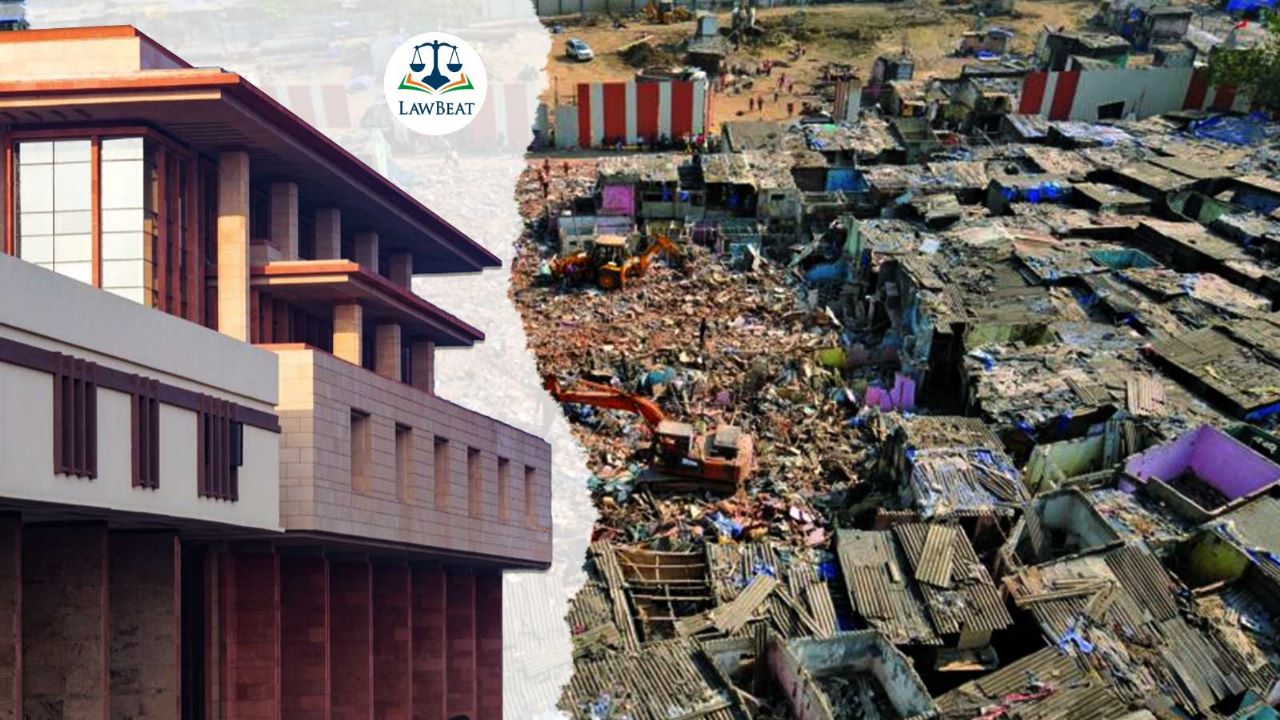“Jhuggi dwellers cannot be disqualified from rehabilitation merely because not in voter list”: Delhi High Court

The Court observed that the purpose of government policies is to ensure rehabilitation and relocation to economically weaker sections and would have to be interpreted in a broader and beneficial manner rather than a narrow and pedantic manner.
The Delhi High Court on Monday observed that Jhuggi Jhopdi (JJ) dwellers cannot be disqualified from rehabilitation under Delhi government’s policy merely on the ground that her name was not in the voter list.
The court was hearing a plea by a jhuggi dweller Beni, who resided in a Jhuggi at Kali Bari Marg with her husband and children from 2001 to 2010. Beni’s case was that her husband abandoned her in 2009, and the entire jhuggi jhopri (JJ) cluster was demolished in 2010. She claimed that she was entitled to relocation and rehabilitation under Delhi government policy.
A bench of Justice Prathiba M. Singh stated that the purpose of government policies is to ensure rehabilitation and relocation to economically weaker sections and would have to be interpreted in a broader and beneficial manner rather than a narrow and pedantic manner.
“The mere fact that the parties cannot produce the name featuring electoral roll, would not be enough for disqualification of jhuggi jhopri dwellers for rehabilitation”, the court said.
The single-judge bench relied on a division bench’s Judgment in Udal and Ors. v. Delhi Urban Shelter Improvement Board and Ors. (2017) wherein it was held that the Appellate Board would have to consider all other documents s including ration card, school records, driving license, aadhar card etc. as well before arriving at a conclusion as to whether the Petitioner is entitled to rehabilitation or not.
“The Petitioner’s case cannot be rejected merely on the ground that the voter ID card was not produced. The decision of the Ld. Division Bench is clear and categorical that other documents which may establish residence at the said Jhuggi would have to be considered holistically”, the court said.
The court ordered, “Let the Appellate Authority under the DUSIB Act, look afresh into the Petitioner’s case considering all other documents produced by her and take a decision on the same within 4 months”. Furthermore, the court stated that the Appellate Authority may also investigate and inquire whether or not the Petitioner's husband has been assigned alternative housing.
It is to be noted that in High Court’s October 2021 order, it was held that “all such dwellers who were found to be eligible were to be relocated, as per DUSIB’s policy”. Subsequently, in 2013, the Delhi government issued ‘Guidelines for implementation of the scheme for relocation/rehabilitation and allotment of flats to the Jhuggi Jhopri dwellers under JNNURM-2013’ (JJ Scheme)’. The Eligibility Determining Committee held a camp from January 5, 2016 to January 15, 2016, where out of the 85 jhuggi dwellers, who had filed the petition, only 52 were found to be entitled to rehabilitation.
The petitioner in the present case had applied for rehabilitation under the aforesaid scheme and was declared ineligible.
Case Title: Smt. Beni v. Government of NCT Delhi and Anr.
Statute: The Jawaharlal Nehru National Urban Renewal Mission (JNNURM)/ JJ Scheme and the Constitution of India
